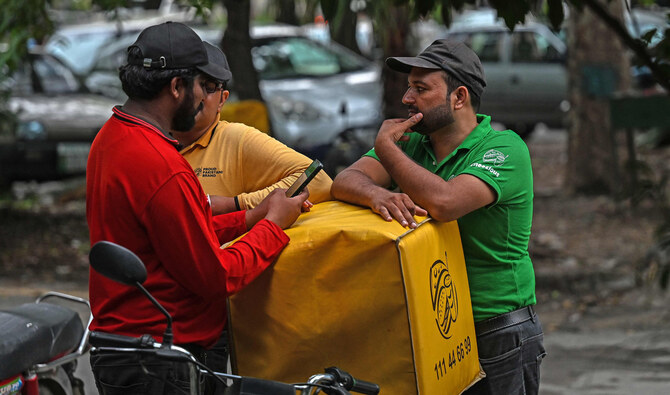ISLAMABAD: Pakistan’s State Minister for Information Technology (IT) Shaza Fatima Khawaja on Sunday rejected reports that the government was responsible for slowing or shutting down Internet across the country, saying that the use of virtual private networks (VPNs) by the masses was responsible for the disruption.
Pakistani freelancers and Internet users this week complained of slow Internet across the country. The Wireless and Internet Service Providers Association of Pakistan (WISPAP) confirmed this week that Internet speed had slowed down by 30-40 percent.
The development took place as the government moved to implement a nationwide firewall to block malicious content, protect government networks from attacks, and allow the government to identify IP addresses associated with what it calls “anti-state propaganda.”
A firewall is a network security device that monitors and filters incoming and outgoing network traffic based on predetermined security parameters. It acts as a barrier whose main purpose is to allow non-threatening traffic in and to keep dangerous and undesirable traffic out.
“I can tell you under oath that the government did not shut down the Internet nor was it slowed down,” Khawaja told reporters at a news conference.
The minister explained that when users in Pakistan download a photograph or stream any video content online, they are provided Internet by local content delivery networks (CDNs), adding that they do not access live Internet from abroad.
She said the country’s majority Internet bandwidth is being run by local CDNs and caches. However, the minister said that once a person uses a VPN, they bypass the CDNs and access Internet directly from the live Internet server from overseas.
“What happens is that when a lot of people stop using these caches and go to the live Internet, then it puts the pressure on the entire Internet and you see a general slowdown of the Internet,” she explained.
Khawaja said that the Internet had slowed down for a few days due to the “natural pressure” exerted on it by people who were using VPNs. The minister said she would consult technical experts and Internet service providers next week to figure out a way to ensure such Internet disruptions do not happen again.
The president of the Pakistan Freelancers Association (PAFLA) said this week that the businesses of over 2.3 million Pakistani freelancers had suffered due to the slow Internet.
“Not only freelancers but IT companies and e-commerce businesses are also affected by the significant degradation in Internet speed,” PAFLA President Tufail Ahmed told Arab News on Thursday.
Pakistani freelancers, meanwhile, had also complained that slow Internet was hitting their earnings hard.
Usman Mehmood, a freelance video animator since 2014, said slow Internet was disrupting timely communication with clients and completion of work.
“In our work time delivery of the project is essential, otherwise the client will move to [freelancers in] other countries, which is happening now,” Mehmood told Arab News on Thursday.
“It should be fixed at the earliest to save all the freelancer’s work.”
















